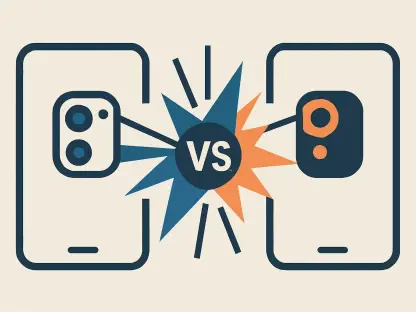On January 1st, a groundbreaking new social media law took effect in Florida, aiming to curb minors’ access to social media platforms. A growing concern over children’s mental health and exposure to harmful content online has driven this legislative effort. However, this law has sparked a heated debate over digital privacy, free speech, and parental control, spotlighting the ongoing struggle to balance safety and freedom in the digital age.
Restrictions on Social Media Access for Minors
Account Limitations and Parental Controls
Under the new legislation, children under 14 years old are outright prohibited from creating their social media accounts. For those aged 14 and 15, social media usage is permitted, but only with explicit parental permission. Social media companies now bear the responsibility of ensuring that these restrictions are enforced within a 90-day window following the law’s enactment. Companies failing to comply will be required to delete accounts that violate these age limitations and must permanently erase all associated personal data. The enforcement phase of this regulation is set to begin in February, providing a short adaptation period for both users and platforms.
This stringent approach signifies a marked shift in digital policy, challenging tech companies to develop robust mechanisms for age verification and data management. Interestingly, this law’s enforcement coincides with rising concerns about children’s digital footprints and their long-term implications. As expected, this initiative has not gone without pushback; tech industry groups argue that the law infringes on First Amendment rights. Consequently, a preliminary injunction hearing has been scheduled for February 28th to address these constitutional concerns.
Age Verification and Privacy Concerns
In addition to age-specific access controls, the law requires stringent age verification measures to restrict minors’ access to “materials harmful to minors,” including pornographic content. This verification can be conducted using either anonymous or standard methods, facilitated by third-party services. Importantly, any age verification data collected must be subsequently deleted to safeguard users’ privacy. This requirement has ignited significant debate regarding its practicality and potential privacy risks, especially considering the sensitive nature of the data involved.
The adult entertainment industry, represented by the Free Speech Coalition, has been particularly vocal in its criticism. The group has filed a lawsuit, arguing that the law’s broad definitions could unintentionally restrict access to essential sex education materials for young people. Additionally, there are grave concerns about privacy invasions for both minors and adults. The contention underscores the complexities inherent in legislating content access and privacy simultaneously, drawing attention to the delicate balance regulators must strike to achieve both objectives without overstepping constitutional rights.
Impact and Enforcement of the Law
Targeted Platforms and Exemptions
The law primarily targets social media platforms that allow user-generated content uploads, have substantial under-16 usage, utilize algorithms for content selection, or incorporate addictive features like infinite scrolling and push notifications. These criteria aim to mitigate platforms’ potential to negatively influence young users by curbing exposure to harmful content and discouraging excessive screen time. However, not all platforms fall under this law’s purview. Direct messaging services, for instance, are explicitly exempted, reflecting an understanding that such services are integral to modern communication and less likely to pose the same risks as broader social media platforms.
Nevertheless, the new regulations pose an operational challenge for social media companies, which must adapt their systems and processes quickly to avoid penalties. Compliance will be monitored under the Florida Deceptive and Unfair Trade Practices Act, with non-compliant entities facing hefty fines. This phase marks a critical juncture, as companies navigate the tightrope between adhering to new legal requirements and maintaining user trust through transparent and respectful data handling practices.
Balancing Safety and Free Speech
On January 1st, a significant new social media law took effect in Florida, designed to limit minors’ access to social media platforms. This legislation was fueled by increasing concerns about children’s mental health and their exposure to harmful content online. Addressing these issues, the law has sparked intense debate among various groups, bringing to light the complex dynamics between digital privacy, freedom of speech, and parental control. Advocates argue that it is a necessary step to protect young minds from the potentially damaging impact of social media. Critics, however, contend that it infringes on digital rights and could lead to overreach in regulating online behavior. This controversy highlights the ongoing struggle to find the right balance between ensuring safety and preserving freedom in the digital age. The new law is expected to prompt further discussions and potentially similar legislative efforts across other states, as society grapples with the evolving challenges of the internet and its effects on younger generations.









